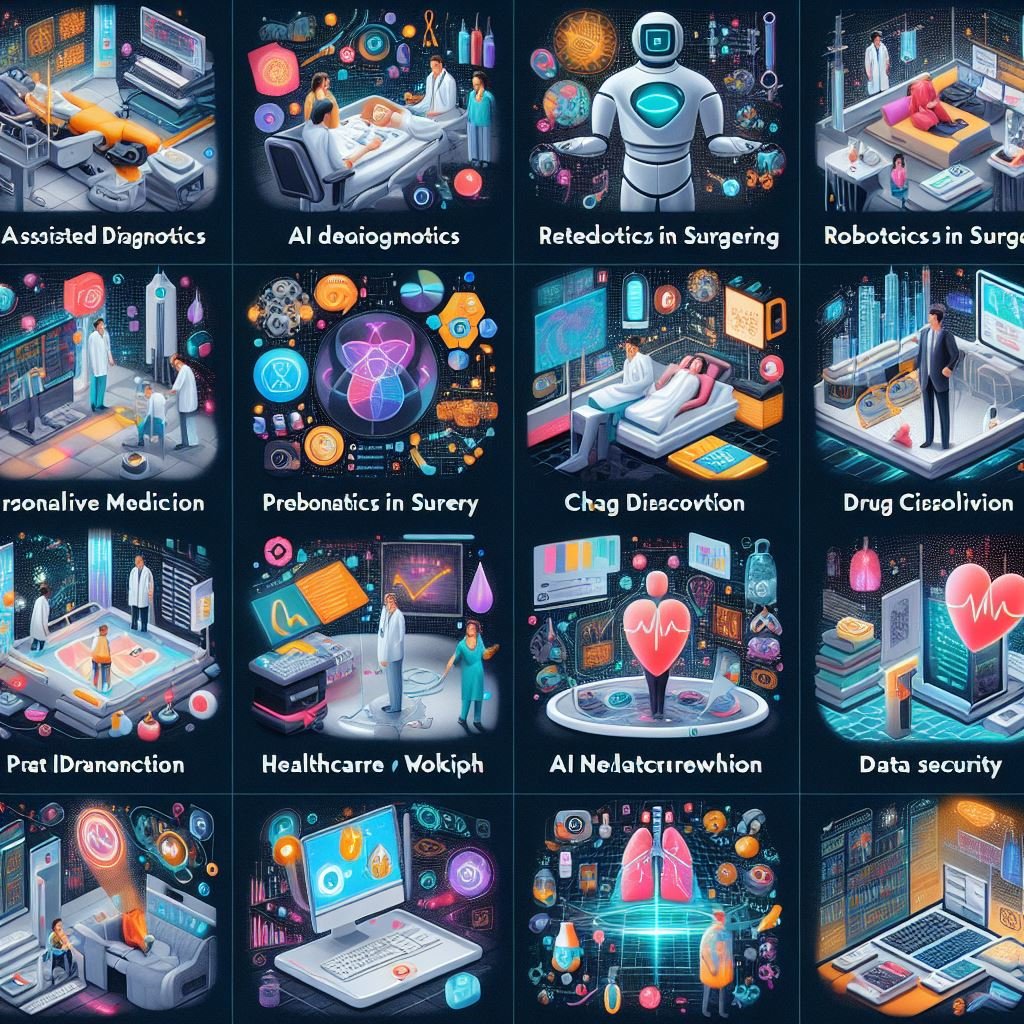How could AI change the future of healthcare?
Artificial intelligence (AI) has the potential to revolutionize healthcare by improving patient outcomes, increasing efficiency, and reducing costs. Here are some ways AI could change the future of healthcare:

Early Detection and Diagnosis:
AI-powered image analysis can detect diseases like cancer and heart disease earlier and more accurately, leading to improved treatment outcomes.
AI can analyze medical records and sensor data to identify potential health risks before symptoms appear, allowing for preventive measures.
Personalized Medicine:
AI can analyze individual genetic and health data to tailor treatment plans to each patient’s unique needs and preferences.
AI can help develop new drugs and therapies that are more effective for specific patient populations.
Improved Treatment and Surgery:
AI-assisted robots can perform complex surgical procedures with greater precision and fewer complications.
AI can be used to personalize drug dosage and treatment plans, minimizing side effects and maximizing effectiveness.
Enhanced Patient Care:
AI-powered virtual assistants can provide patients with 24/7 access to information and support, reducing the burden on healthcare providers.
AI can analyze patient data to identify individuals at risk of developing chronic diseases, allowing for early intervention and better management.
Streamlined Administration:
AI can automate administrative tasks like scheduling appointments, billing, and coding, freeing up healthcare providers to focus on patient care.
AI can analyze data to identify areas for cost savings and improve overall healthcare system efficiency.
Challenges and Considerations:
Data privacy and security: Ensuring the safe and secure storage and use of patient data is crucial.
Bias and fairness: AI algorithms can perpetuate existing biases in healthcare. It’s important to develop and deploy fair and unbiased AI systems.
Accessibility and affordability: Equitable access to AI-powered healthcare technologies is essential to ensure all populations benefit.
Regulation and oversight: Robust regulatory frameworks are needed to ensure the responsible development and deployment of AI in healthcare.
Overall, AI has the potential to transform healthcare for the better. Addressing the challenges and harnessing the potential of this technology can lead to a healthier future for all.

